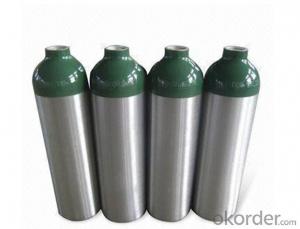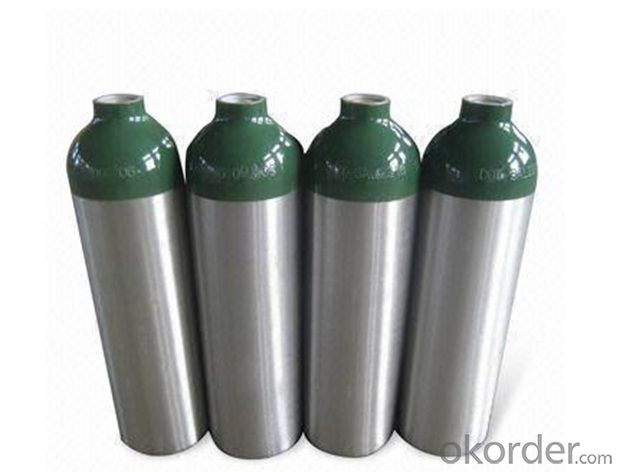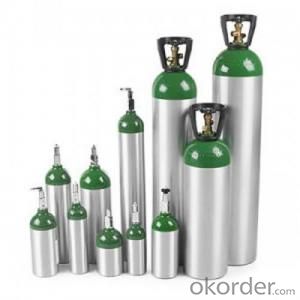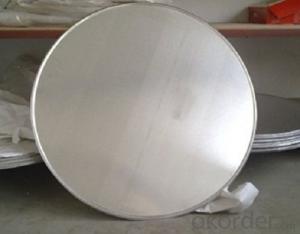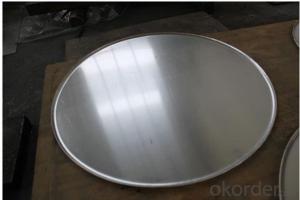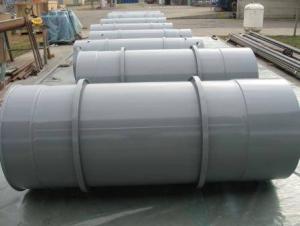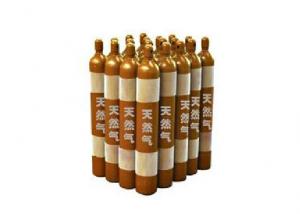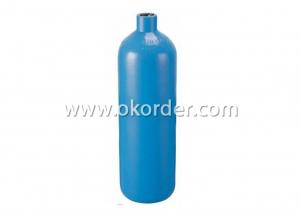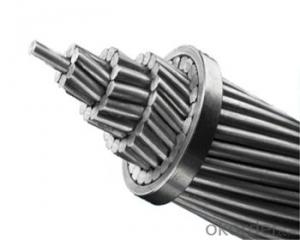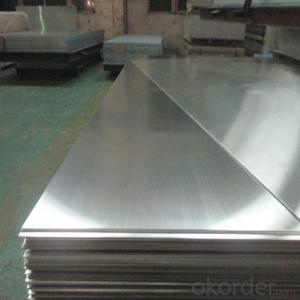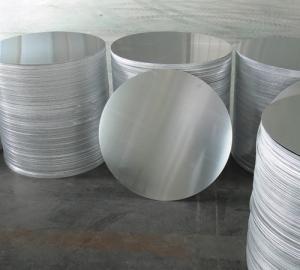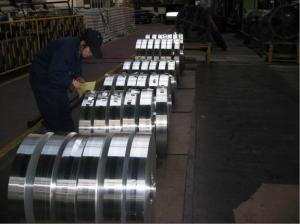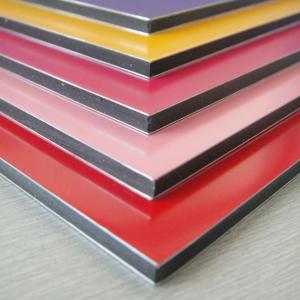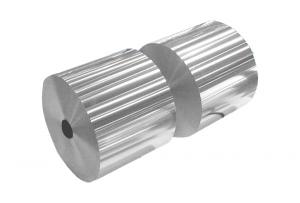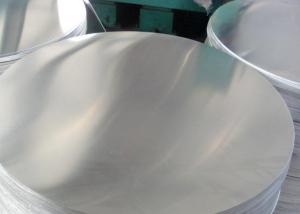Aluminum High Quality Aluminum Alloy Gas Cylinder
- Loading Port:
- Shanghai
- Payment Terms:
- TT or LC
- Min Order Qty:
- 50 m.t.
- Supply Capability:
- 5000 m.t./month
OKorder Service Pledge
OKorder Financial Service
You Might Also Like
1. Description of High Quality High Quality Aluminum Alloy Gas Cylinder
The Aluminum Alloy Gas Cylinder is made of superior quality aluminum alloy 6061 and manufactured through the procedures of punching, drawing, heat treatment, CNC flow forming spinning, anodic oxidation treatment to the inner surface, etc. It is used to be filled and refilled various kinds of gas, such as rare gases, high purity gases, standard gases, special gases, with a wide range of applications in the chemical industry, electronic industry, medical treatment, gas and coal mining fields, which is the ideal substitute for the steel cylinder. We also have the ability to design and produce the seamless aluminum alloy cylinders with special specifications and technical requirements. We have got the TPED certificate of CE certification for Seamless Aluminum Alloy Gas Cylinder
2. Specification and Size
| Order | Model | Outer Diameter mm | Volume L | Height mm | Weight kg | Working Pressure (MPA) | Designed Wall Thickness mm |
| 01 | LWT89-0.6-20 | 89 | 0.6 | 200 | 1.2 | 20 | 5.8 |
| 02 | LWT89-1-20 | 89 | 1 | 295 | 1.6 | ||
| 03 | LWT89-1.4-20 | 89 | 1.4 | 380 | 2 | ||
| 04 | LWT89-1-15 | 89 | 1 | 260 | 1.3 | 15 | 4.5 |
| 05 | LWT89-1.4-15 | 89 | 1.4 | 340 | 1.6 | ||
| 06 | LWT108-2-15 | 108 | 2 | 355 | 2.2 | 15 | 5.4 |
| 07 | LWT108-2.5-15 | 108 | 2.5 | 425 | 2.6 | ||
| 08 | LWT120-3-15 | 120 | 3 | 410 | 3.5 | 15 | 6 |
| 09 | LWT120-4-15 | 120 | 4 | 520 | 4.2 | ||
| 10 | LWT120-5-15 | 120 | 5 | 630 | 4.9 | ||
| 11 | LWT140-4-15 | 140 | 4 | 410 | 4.3 | 15 | 7 |
| 12 | LWT140-6.3-15 | 140 | 6.3 | 605 | 6.3 | ||
| 13 | LWT140-8-15 | 140 | 8 | 745 | 7.6 | ||
| 14 | LWT159-8-15 | 159 | 8 | 615 | 8.3 | 15 | 7.9 |
| 15 | LWT159-10-15 | 159 | 10 | 745 | 9.8 | ||
| 16 | LWT180-10-15 | 180 | 10 | 610 | 10.5 | 15 | 9 |
| 17 | LWT180-12-15 | 180 | 12 | 710 | 11.9 |
3. FAQ
A.How to guarantee the quality?
Customers are welcome to our mill to visit and check the products. Besides, we can arrange a third party to test the products.
B.When will you deliver the products?
The goods will be delivered within 35 days after receiving advanced payment or original L/C.
- Q: Does aluminum undergo corrosion when exposed to seawater?
- <p>Aluminum does not typically corrode in seawater due to its natural protective oxide layer. When exposed to air or water, aluminum forms a thin, dense layer of aluminum oxide on its surface, which prevents further corrosion. This passive layer makes aluminum highly resistant to corrosion in most environments, including seawater. However, under certain conditions such as in the presence of certain chemicals or extreme pH levels, the protective layer can be compromised, leading to corrosion. Generally, though, aluminum is considered a good material for marine applications because of its corrosion resistance.</p>
- Q: This question asks for a list of typical aluminum alloys that are widely used in various industries.
- <p>Common types of aluminum alloys include 1000 series, which are nearly pure aluminum; 2000 series, known for their strength due to copper content; 3000 series, which are alloyed with manganese for good formability; 5000 series, featuring magnesium for improved strength and corrosion resistance; 6000 series, which are popular for their strength and heat treatability; and 7000 series, recognized for their highest strength among aluminum alloys, often used in aerospace and automotive applications. Each series offers unique properties that make them suitable for specific applications.</p>
- Q: Explain the impact of aluminum on manufacturing processes in a few sentences.
- <p>The use of aluminum significantly affects manufacturing processes by offering several advantages. It is lightweight, which reduces the weight of products and can lead to fuel efficiency in transportation sectors. Aluminum's high strength-to-weight ratio makes it ideal for structural components. Its excellent thermal and electrical conductivity allows for efficient heat dissipation and electrical transmission. Additionally, aluminum is non-magnetic and non-corrosive, which is beneficial for certain applications. The metal is also easily recyclable, contributing to sustainability in manufacturing. These properties make aluminum a popular choice in industries such as automotive, aerospace, construction, and electronics, enhancing the efficiency and performance of manufacturing processes.</p>
- Q: Is aluminum suitable for use in paint and coating applications?
- <p>Yes, aluminum can be used in paints and coatings. It is often used in the form of aluminum pigments or flakes, which provide a metallic appearance and enhance the durability and corrosion resistance of the coating. Aluminum pigments are also valued for their ability to reflect light and heat, making them useful in applications requiring thermal insulation or reflective properties. Additionally, aluminum can be used in powder coatings, providing a hard, wear-resistant finish.</p>
- Q: This question asks for the distinguishing characteristics of aluminum compared to other metals.
- <p>Aluminum is a lightweight, silvery-white metal that is the most abundant metal in the Earth's crust. It is known for its low density, making it one-third the weight of steel. It is highly malleable, ductile, and has excellent corrosion resistance due to the formation of a protective oxide layer. Unlike many other metals, aluminum is not magnetic and has good thermal conductivity. It is also non-toxic and can be recycled easily. These properties make aluminum distinct from other metals such as iron, copper, and lead, which have different densities, melting points, and chemical reactivities.</p>
- Q: Is it possible to use aluminum as a fuel source?
- <p>Aluminum can be used as a fuel in certain applications, particularly in the form of aluminum powder. It has a high energy density and burns at high temperatures, making it suitable for solid rocket propellants and thermite reactions. However, it is not commonly used as a traditional fuel like gasoline or coal due to its reactivity and the challenges in handling and storage. Aluminum combustion also produces aluminum oxide, which can be harmful to the environment if not managed properly.</p>
- Q: Explain the distinctions between aluminum alloys and pure aluminum in a few sentences.
- <p>Aluminum alloys and pure aluminum differ in composition and properties. Pure aluminum is soft and has low strength, making it less suitable for structural applications. In contrast, aluminum alloys are made by combining aluminum with other elements like copper, magnesium, or silicon to enhance strength, durability, and resistance to corrosion. These alloys maintain the lightweight nature of aluminum while offering improved mechanical properties, making them ideal for various industries, including aerospace, automotive, and construction.</p>
- Q: Is aluminum a suitable material for manufacturing electric wires and cables?
- <p>Yes, aluminum is commonly used to make electric wires and cables due to its excellent electrical conductivity, which is about 61% that of copper. It is lighter than copper and more abundant, making it cost-effective. Aluminum's high resistance to corrosion also makes it a durable choice for wiring. Despite its lower conductivity compared to copper, its lower cost and weight often make it the preferred material for power transmission lines and electrical wiring in various applications.</p>
- Q: This question asks about the typical applications of aluminum pipes in various industries and settings.
- <p>Aluminum pipes are commonly used in a variety of applications due to their lightweight, corrosion resistance, and high thermal conductivity. They are extensively used in the automotive industry for parts like radiators and heat exchangers. In construction, aluminum pipes are utilized for heating, ventilation, and air conditioning (HVAC) systems. They are also used in the beverage industry for conveying and cooling liquids, as well as in the aerospace industry for fuel and hydraulic lines due to their strength-to-weight ratio. Additionally, aluminum pipes are found in industrial settings for compressed air and gas lines, and in marine applications for fuel and water systems.</p>
- Q: Is it possible to utilize aluminum in car manufacturing to enhance fuel efficiency?
- <p>Yes, using aluminum in car manufacturing can contribute to increased fuel efficiency. Aluminum is lighter than traditional steel, which can reduce the overall weight of a vehicle. A lighter car requires less energy to move, which can lead to better fuel economy. Additionally, aluminum has good strength-to-weight ratio, allowing for a strong yet lighter structure. However, it's important to note that while aluminum can enhance fuel efficiency, it also has higher manufacturing costs and may not be as recyclable as steel.</p>
Send your message to us
Aluminum High Quality Aluminum Alloy Gas Cylinder
- Loading Port:
- Shanghai
- Payment Terms:
- TT or LC
- Min Order Qty:
- 50 m.t.
- Supply Capability:
- 5000 m.t./month
OKorder Service Pledge
OKorder Financial Service
Similar products
Hot products
Hot Searches
Related keywords
